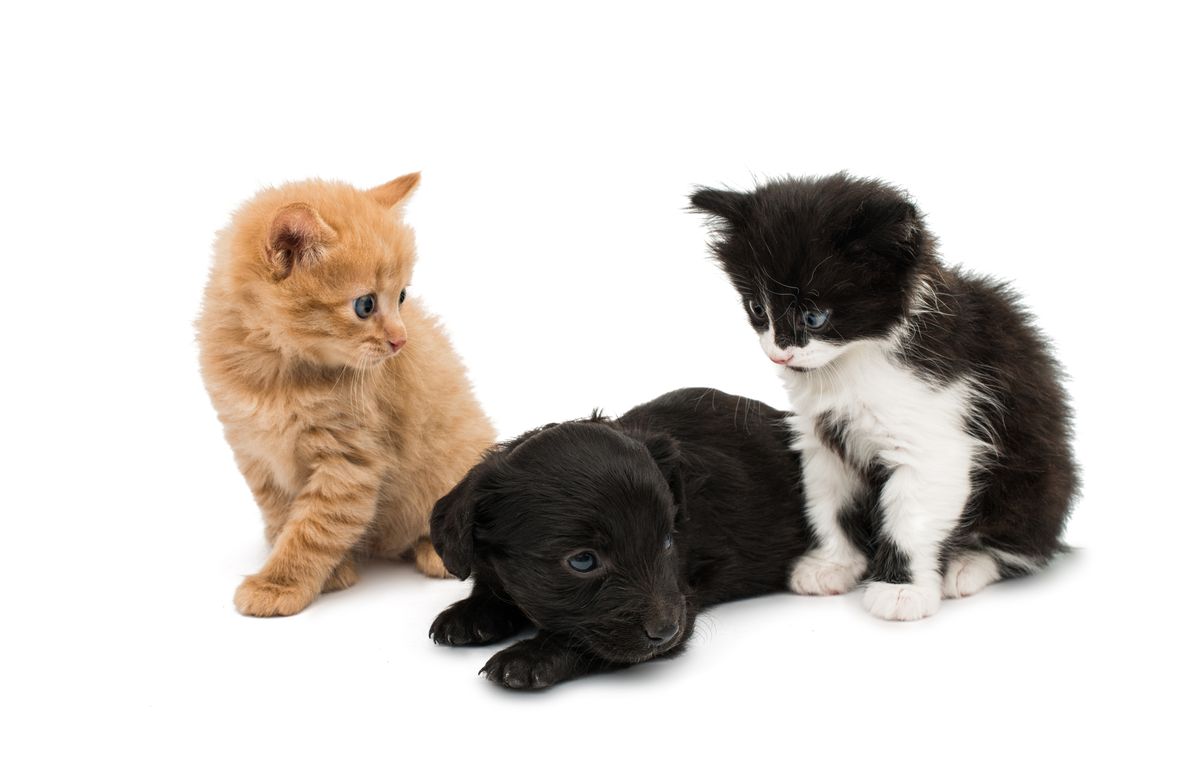An Unconventional Wholesome Exercise: What Are You Rarely Criticised For?
You might learn some unexpected things about yourself

Don’t you wish you had a higher self-esteem?
It’s hard to stick up for yourself, and even harder to express your needs. You’re so considerate towards others, yet you don’t take your own feelings seriously.
But you know your low self-esteem is affecting your relationships and your work. So you want to learn how to love yourself.
You’ve heard of strategies like listing your strengths, praising yourself, and noting down compliments that others give you.
Do these exercises work, but only sometimes?
Then let’s try a more unconventional method. Ask yourself what criticisms you have never or almost never gotten.
This reverse, topsy-turvy perspective might make a greater impact on you than just thinking directly about what people compliment you on.
Now, you might tell me that just because few people criticize you for something, doesn’t mean that problem doesn’t exist. Fair, but if many people critique you for other things, then why do so few critique you for these things?
You might also worry that by exploring what people rarely criticise you for, you would be complimenting yourself, and you don’t feel comfortable giving yourself praise.
Oh, but I’m not asking you to give yourself praise! I’m literally just asking you to tell me what people don’t criticize you for. So you’re describing other people’s behavior, not your own.
Then you can think more deeply about why you got or didn’t get certain criticisms.
You’ll learn some interesting things about yourself, and also about how other people form their judgments.
Here are some things I have almost never been criticized for:
Being “stupid” or “dumb”
Only my mom called me dumb a few times. Everyone else who commented on my intelligence, told me I was smart. This was probably because I was good at academics, and often got top-of-the-class marks. And sadly, our society values academics more than most other types of intelligence.
Yet, was I really that bright, or did I just have a lot of favorable circumstances?
For one, I was passionate about the subjects I chose, so it was easier for me to work hard and excel in the first place.
Moreover, I rarely got sick during the semester so I didn’t have to miss many classes. I lived close to school so I didn’t waste much time commuting. My parents financially supported me so I could focus on studying rather than working to pay my tuition.
I didn’t have any learning disabilities. And while I might have some ADHD, it was mild enough that it wasn’t too hard for me to concentrate on schoolwork.
All of these privileges helped me achieve in school. If I lacked any of these lucky circumstances, my grades would probably have plummeted.
Plus, while I was distinguished in academics, I struggled with sports and any hands-on work. If our schools prioritised sports and manual activities, I would suffer. I even got Ds in physical education and a D in design technology (which involves physical construction skills).
My science teachers were dismayed at why I was so good with theory, yet so crap with lab work. By crap, I don’t just mean below average. I mean bottom-of-the-class performance. So if school was focused on these practical, physical skills, I would fail every class and I’m not even joking.
People rarely call me “ugly”
I have many caveats for this, so bear with me.
My parents were the only ones who explicitly called me unattractive.
My dad once called me “plain.” He added that this was good, because “beautiful girls never get a happy ending.” Oddly enough, he soon contradicted himself by saying that I looked good with an apron.
I later realised that he found girls more attractive in dresses and uglier in pants…Yikes. This was back when we believed I was a cis girl. (I’m a transgender nonbinary person.)
Another time, I told my mom about a conversation I had with my counselor in university. The counselor thought there was something wrong with me because I had never had a romantic relationship and still didn’t want one.
She asked, “What if you go on a trip with your peers, and a guy asks you out because he finds you cute and attractive?”
I was aghast why I would say yes to a guy if he’s asking me out just for my “looks,” since that’s very shallow and foolish. You would torture yourself if you went out with someone you found attractive, only to realize that they have an awful personality.
My mom’s response to this whole story was: “You’re not that attractive.”
I leave you to be the judge of whether my mom said that out of spite, envy, or another motive. But what was notable, was that she called me beautiful both before and after that incident. So I guess how good I look depends on my mom’s mood.
And she wonders why I don’t tell her anything about my life anymore.
Aside from my parents’ comments above, nobody has called me “ugly.” Some have called me chubby, short, having a lot of acne, having a fat ass, and whatnot. But no one overtly said I looked bad.
The fat ass comment is confusing, too. I came from Hong Kong, where you’re more attractive if you have a nonexistent ass. Yes, you read that right. Nonexistent. Yet in North America, having a big butt is attractive. So yay that I moved to North America?
What’s more, I avoid offending people, which likely saved me from a lot of criticism. A girl who I consider prettier than me, said that people have called her “hideous.”
That was shocking, but personality-wise, she could rub others the wrong way. So some people might have retaliated by dissing her appearance. Since she had darker skin (she’s Arabian), some folks were probably being racist towards her too.
Speaking of racism, a Vietnamese trans guy I know got a nasty comment on his looks based on some anti-Asian attitudes. I was astounded by this criticism, because I thought he was very handsome — and I had a crush on him, too.
All this goes to show that no matter how mean people are about your appearance, you shouldn’t give them any credit. Beauty is also so subjective.
And even if you’re like me, where I lack most popular beauty traits — I’m short, fat, balding, have blemished skin, am a bit asymmetrical, and am also not cisgender — some people will find you cute and attractive regardless.
Don’t listen to people if they tell you there’s an “objective beauty scale.” There isn’t. Many “beauty standards” are also racist and transphobic.
Others rarely call me “boring”
My mother was the only one who made a few snide remarks about me being boring, because she didn’t care about what I was saying. I was talking about writing, and she hates writing.
But no one else has ever called me “boring.” In fact, people often tell me I’m “interesting” or “unique.” Some have even called me “creative” or “imaginative.”
Now before I lose my audience by showering such lavish praise on myself, let me get into the caveats:
“Boring” is not some innate and stable personality trait. It’s incredibly subjective. If someone at a party talks about philosophy, I would be intrigued by them while many others would find them dull.
On the other hand, some people enjoy talking about sports. I don’t have any gripes against sports, but I’m not the target audience. So I feel indifferent when someone talks about Team X beating Team Y due to reason Z. (Yes, I like algebra more than sports, I’m sorry.)
The other caveat to the “boring” critique, is that I put in the effort to be different and unconventional. Being original is more about effort than about ability.
In fact, I’ve noticed that some other creators, despite their high-quality work, aren’t what you would call “creative”….This isn’t because they lack imagination. They just don’t seem that interested in making themselves look unique.
In contests, I strive to do something different from the other contestants. Even if I don’t win, I would still have the satisfaction of doing something rebellious and against the norm.
However, winning entries are not always the most creative or unconventional ones in the contest. This should show us that there are more important things than originality.
Sometimes, even I don’t think I should stray too far off the beaten track, and ought to prioritise something else, e.g. the emotional impact of my work.
All in all, we don’t need to put too much stock in what other people say about us. Let’s think for ourselves what we are.
So many value judgments are subjective, and many of them change depending on the other person’s mood, preferences, the social situation, how you present yourself, and countless other factors.
Unrelated Lesson: In Chinese culture, we have what I call a self-deprecating contest. We put ourselves down as harshly as we can, while the other person puts themselves down even more. We would say, “I am slow-witted and clumsy,” “I am not worthy,” “I am incompetent,” and all sorts of self-negating things.
This might sound pathological from a Western perspective, but as a Chinese person, I find this endearing and even funny. In fact, I bet I could beat most of you in this self-denigrating contest!
Originally published in Badform on Feb 5, 2023



